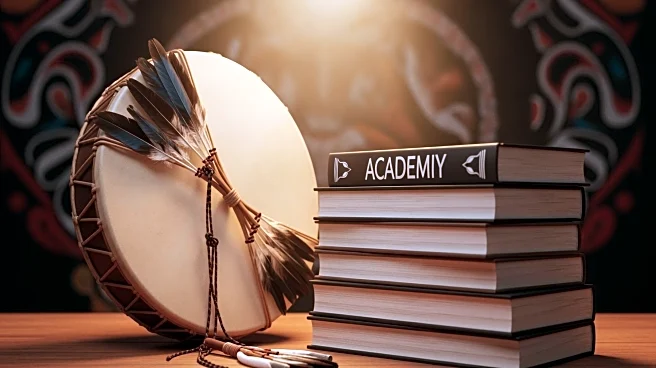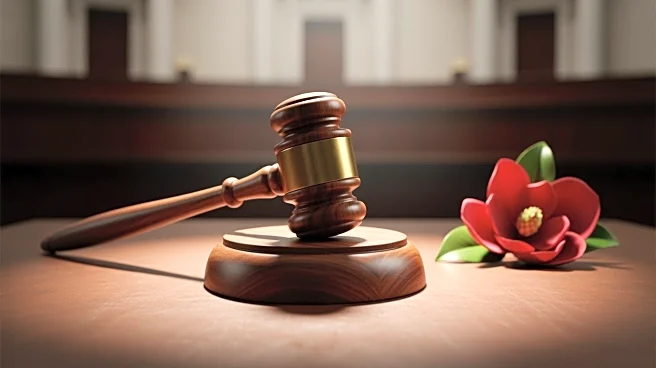What's Happening?
Efforts are being made to amplify Indigenous voices beyond traditional land acknowledgements, particularly in music and academia. Artists like Shawn Mendes and Coldplay have invited Indigenous performers
to share the stage, showcasing Indigenous talent and culture. In academia, courses on Indigenous and decolonial thought are being offered, encouraging deeper understanding and engagement with Indigenous issues. These initiatives aim to move beyond performative gestures and create meaningful inclusion and representation of Indigenous communities in various cultural and educational spaces.
Why It's Important?
These efforts are crucial in addressing the historical and ongoing marginalization of Indigenous communities. By integrating Indigenous voices into mainstream platforms, there is potential for greater awareness and appreciation of Indigenous cultures and issues. This can lead to more informed public discourse and policy changes that support Indigenous rights and self-determination. The inclusion of Indigenous perspectives in academia enriches educational experiences and fosters a more comprehensive understanding of history and social justice.
What's Next?
Continued advocacy for Indigenous representation in music, academia, and other cultural sectors is expected. Artists and institutions may increasingly collaborate with Indigenous communities to ensure their voices are heard and respected. Educational institutions might expand their curricula to include more Indigenous content, and scholarships for Indigenous students could become more prevalent.
Beyond the Headlines
The movement towards greater Indigenous representation challenges societal norms and prompts reflection on cultural appropriation and genuine inclusion. It also highlights the need for systemic change in how Indigenous histories and contributions are recognized and valued.









